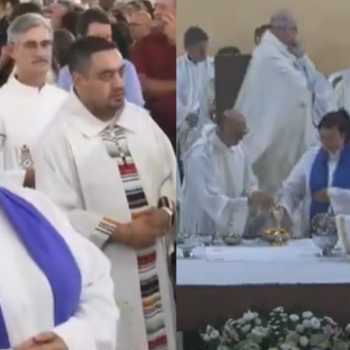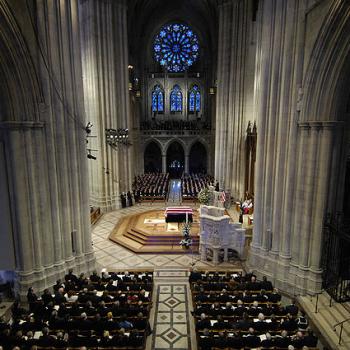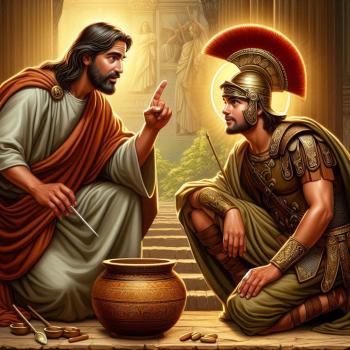In another revelation, we learn that "it pleaseth God that he hath given all these things unto man; for unto this end were they made to be used, with judgment, not to excess, neither by extortion" (D&C 59:18-20). This ethic exists mainly because, as LDS prophets have consistently taught, no earthly possession truly belongs to us but to the Lord and we should therefore exercise care to use only what we need. The Lord requires the remainder to be consecrated and redistributed for the upliftment of the needy, and only in this way we can be assured that there is "enough and to spare" of nature's resources (see D&C 104).
LDS scriptures clearly announce the centrality of human beings as God's offspring and declare that all of creation was provided for human enjoyment and use. Significantly, however, this human-centered view does not justify abuse of nature; enjoyment and appreciation come before use. Before Adam learned that fruits of the tree could be used for food, he learned to appreciate a tree's beauty: "And out of the ground made I, the Lord God, to grow every tree, naturally, that is pleasant to the sight of man; and man could behold it" (Moses 3:9).
The Lord repeats this priority of aesthetic over utilitarian value in a revelation to Joseph Smith: "All things which come of the earth, in the season thereof, are made for the benefit and use of man, both to please the eye and gladden the heart" (D&C 59:18). In the LDS view, God expects us to make use of nature, but the priority is on nature's intrinsic beauty, which bears witness of Christ's love and for which we have an ethical responsibility to demonstrate due appreciation. Such appreciation, unfortunately, is hard to inculcate in our era of aesthetic impoverishment.
Christian doctrines of the millennium and the eventual death of the earth have caused many believers to view concerns of some environmentalists as frantic and unwarranted worries. While Mormonism believes in a literal end of the earth's life, there is no LDS scripture that justifies inaction in the face of evil, even when such evil has been prophesied. It must be admitted at least that it makes no logical sense to believe that if our bodies are destined to die, we ought to neglect our health. Mormons are certainly well known for not smoking, drinking alcohol, coffee or tea, or using illicit drugs.
This practice is in accordance with part of what is known as the Word of Wisdom, a dietary code revealed to Joseph Smith in 1833 that also stipulates a moderate and balanced diet of vegetables, grains, fruits, and infrequent use of meat. While every active Mormon understands the obligation to avoid the deleterious substances mentioned, these more proactive aspects of the diet are not always followed with the same strictness. If every Mormon were to reduce meat consumption, especially red meat, in half, it would no doubt have a tremendously positive environmental effect.
The point, however, is this: if it is inconceivable to justify pollution of the body since it will die anyway, why do Mormons and other Christians give in to the faulty logic that the earth's prophesied death justifies our willing participation in killing it? Perhaps we have simply become indifferent to the spiritual life of non-human things. This is especially disappointing when we consider that LDS doctrine teaches that, if we are worthy, we can return to the earth, which will resurrect and become the site of the celestial kingdom, the highest degree of eternal glory in LDS belief. The earth, in other words, is hopefully our ultimate destiny, not to be discarded in favor of some better place but to be prepared for the Savior's return.
I can only conclude that those of us who have made the decision to devote ourselves to the necessary weekly hours of worship and study of our religion need to acknowledge that such commitment brings heavy and sobering moral responsibilities. An LDS church leader once said that being in church no more makes you a Christian than being in a garage makes you a car. The solution, in other words, is not less religion, but more intent listening on the pew and a more circumspect and self-distrusting vision of what it means to get off the pew and practice what we preach. Otherwise we render religion irrelevant in the face of the largest questions concerning our purpose and destiny on earth.
George B. Handley is Associate Professor of Humanities at Brigham Young University. A resident of Provo with his wife Amy and four children, he has served as a BYU campus Bishop. He is still striving to understand the full responsibilities of being a "practicing" Mormon and profoundly enjoys the challenge.




